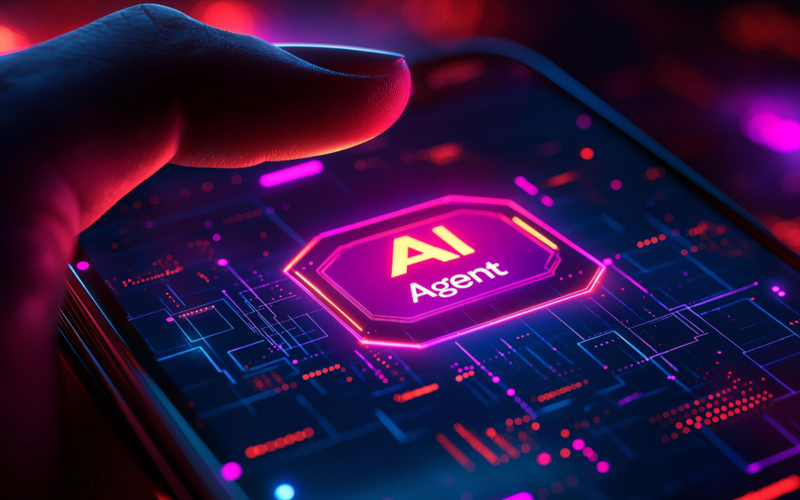As competition intensifies and customer expectations rise across every channel, modern enterprises need a sharper edge. The rise of agentic AI in digital marketing signals a decisive shift in marketing efforts, where marketing AI agents take on complex, revenue-critical responsibilities. Gartner predicts that by 2029, agentic AI will autonomously resolve 80% of common service issues, reducing operational costs by 30%. This change sets the foundation for a new era of intelligent, autonomous marketing execution and stronger customer growth.
what are autonomous AI marketing agents?
Autonomous AI marketing agents are intelligent operators that run multi-step marketing workflows without constant human intervention. They use advanced reasoning, planning, and adaptive decision-making to move beyond rule-based automation and deliver continuous, context-aware execution.
These next-generation systems operate as digital partners with the ability to:
- Process multimodal inputs, including text, audio, video, and sensor data.
- Break down complex tasks into smaller steps and coordinate them end-to-end.
- Collaborate with marketing teams through natural language interfaces.
- Make decisions in real time using contextual understanding.
- Learn from feedback loops to improve accuracy and outcomes.
A marketing AI agent functions as a digital executive assistant capable of orchestrating:
- Audience segmentation
- Personalisation flows
- Campaign deployment
- Cross-channel optimisation
- Reporting and performance analysis
benefits of agentic AI in digital marketing
Enterprises face rising customer acquisition costs, fragmented data ecosystems, growing personalisation demands, and intense marketplace pressures. Agentic AI in digital marketing offers a pragmatic path forward with benefits like:
- Continuous improvement through rapid learning cycles that refine campaigns automatically.
- Improved customer engagement by delivering timely, relevant interactions across channels.
- Reduced complexity across systems with better orchestration and tool integration.
- Scalable execution with lower overhead through autonomous workflows that lighten operational load.
- Enhanced decision support using contextual insights for better strategic actions.
- Always-on marketing that ensures campaigns never pause, even outside business hours.
Infosys BPM supports enterprises with advanced generative AI solutions that activate autonomous marketing capabilities at scale. They help streamline data integration, operational workflows, and intelligent orchestration, enabling businesses to unlock measurable value from marketing AI agents.
how marketing AI agents transform customer engagement
Marketing AI agents play a pivotal role in transforming customer journeys through AI-powered customer engagement strategies. They enable consistent, contextual engagement across the customer lifecycle with constant intelligence, adaptive learning, and precision execution.
Autonomous AI marketing agents redefine customer engagement and growth by:
shifting from broad messaging to real-time personalisation across touchpoints
Hyper-relevant content replaces generic messaging as these agents assess intent, behaviour, and patterns to personalise experiences for every audience segment. Context-aware recommendations adapt instantly across email, ads, social channels, and product interfaces, keeping every interaction aligned with user behaviour. Moreover, predictive models identify intent signals and trigger proactive outreach, improving retention, reactivation, and conversion outcomes.
improving intelligence through data-driven insight
Marketing AI agents collect, unify, and analyse data from multiple sources, delivering a sharper understanding across campaigns, journeys, channels, and customer preferences. With agentic AI in digital marketing, enterprise leaders also gain high-quality insights that guide planning, performance management, and resource allocation.
enabling workflow automation and autonomous decision-making
Manual tasks shrink as autonomous agents manage integrations, schedule campaigns, distribute content, and reconcile performance data. Autonomous AI marketing agents also evaluate performance signals and make independent decisions about timing, channel selection, offers, and content variations.
orchestrating dynamic, multi-channel journeys
Campaign orchestration becomes seamless, with marketing AI agents coordinating messaging, timing, and assets across channels to maintain consistent experiences. Natural language interfaces enable fluid interactions across chat, voice, and messaging, increasing accessibility and customer satisfaction. Autonomous AI marketing agents also adjust creative assets, placements, and messaging in real time, ensuring campaigns stay competitive and relevant in fast-moving markets.
driving continuous optimisation
Autonomous agents refine campaigns through ongoing experimentation, adapting strategies based on outcomes, trends, and user responses.
Although marketing AI agents are redefining customer engagement and growth, enterprises must still navigate challenges like:
- Data privacy and security risks.
- Integration with legacy systems and scattered tools.
- Oversight, transparency, and human-in-the-loop control.
- Bias mitigation and fairness across AI-driven decisions.
- Internal and external trust in autonomous technologies.
- The rapid pace of AI evolution and regulatory shifts.
However, a thoughtful governance model can ensure these challenges strengthen – not hinder – the path to scalable transformation.
conclusion
Marketing AI agents signal a decisive shift towards intelligent, adaptive, and autonomous marketing operations. As customer expectations rise, enterprises gain an opportunity to build stronger, always-on engagement using autonomous AI marketing agents and future-ready AI-powered customer engagement strategies. Brands that adopt this approach early will build resilient, insight-led systems capable of thriving in fast-changing markets. This shift sets the foundation for long-term, sustainable advantage as AI-driven engagement becomes central to every competitive strategy.
FAQ
Marketing AI agents enhance engagement by autonomously personalizing interactions across channels using real time behavioral insights. [Direct Answer] They analyze customer journeys and adjust messaging, offers, and timing to match individual preferences. This leads to higher response rates, reduced acquisition costs, and stronger customer loyalty.
Key challenges include data quality management, integration with legacy martech stacks, and governance of automated decisions. Without consistent data and clear oversight, AI agents can generate irrelevant or conflicting customer messages. Strong data practices and governance frameworks ensure AI agents drive engagement without increasing risk.
Enterprises can measure outcomes such as improved conversion rates, lower cost per lead, and increased customer lifecycle value. Tracking these KPIs before and after AI agent deployments quantifies impact on acquisition efficiency and retention. When tied to financial goals, these metrics demonstrate how AI agents contribute to growth and profitability.
AI agents support scalability by automating repetitive campaign tasks, real time segmentation, and adaptive optimization across channels. This reduces manual workload while maintaining consistent quality and relevance at scale. Marketing teams can shift focus to strategy and innovation, accelerating time to market for high impact initiatives.








